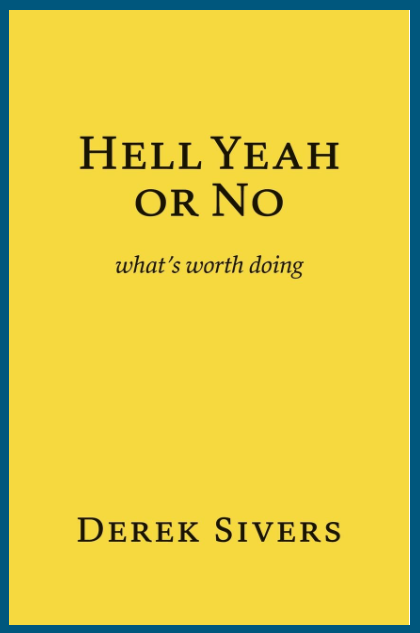Character cannot be developed in ease and quiet. Only through experience of trial and suffering can the soul be strengthened, ambition inspired, and success achieved.
Helen Keller
It is great to be alive, but this life is not all love and roses. Being a human does come with its own difficulties. How we decide to deal with those difficulties, the ones that life throws at us, goes a long way towards determining how great our own life will be.

The hard truth is that, as humans, we are destined to make difficult decisions every day based, unfortunately, on incomplete information. We never find ourselves in a situation where we know everything before we choose a course of action; we are always forced to make decisions with a less-than-optimal amount of data.
Far too often in our lives, we find ourselves in this situation: we need to make a choice, but we don’t have all the information. And to top it off, we have no idea how much each particular decision will influence the trajectory of our lives.
It’s not right, it’s not fair, and it’s not easy to do, but it’s part of the human condition. So, we do it; we make decisions. Most of the time, we don’t like doing it, but we still do it anyway.
If we’re resigned to making decisions on incomplete information, it makes sense to figure out how much information we should have in order to make the best decision possible. We know that we won’t make the right decision every time, but we’d like to do the right thing as often as we can.

The question then becomes: how much information should we have so that we feel confident that we are making the right decision? In a 2016 letter to Amazon shareholders, Jeff Bezos said “Most decisions should probably be made with somewhere around 70% of the information you wish you had.” Gen. Colin Powell speaks of his 40–70 rule, whereby we shouldn’t act with less than 40% of the information we wish we had, lest we make reckless decisions. He states that we should not wait for every single scrap of information either, lest we succumb to paralysis by analysis. Once we find our knowledge within that 40–70% range, it’s time to decide, lest an opportunity pass us by.
Unfortunately, our decisions don’t all turn out the way that we anticipate. There will always be additional factors that we didn’t (and couldn’t possibly) consider. We will always be subjected to those “If I had only known… “ moments. Bad things (from our subjective point of view) are always going to happen to us. It’s impossible to consider all the variables in a given situation; we simply have to do the best we can with the facts that we are given in each particular situation, and let the chips fall where they may.
Certainty is not a word that is often thrown around when it comes to decision making. Smart people realize that there will always be facts that are outside of their base of knowledge. They know that it is inevitable that we will find ourselves in difficult situations, quite often of our own making.

The trick isn’t in how we handle the times when our decisions turn out to be winners, although that’s important; the real key to life lies in how we handle the fallout from all the rest of our decisions, the ones that aren’t winners. It is easy to stand tall when we’re successful; it’s the rare individual who is still in command when things go off the rails.
It’s those people who end up making a difference.
Stand tall. It’s really our only option.
Would you like to get an email every Friday where we share the newest things we’ve discovered about home inspections? CLICK HERE to sign up.
Want to be an Influencer in Your Field? Share This Post!
Thanks, Joe

